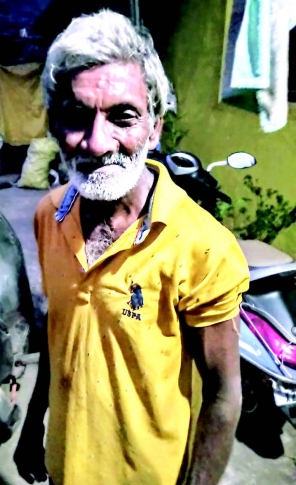
ERWIN FONSECA
SIOLIM: Holi and the cashew season in Goa have long been intertwined. When Holi arrives, thoughts turn to various cashew products like cashew juice or Niro, urrack, and cashew feni. Traditionally, it was believed that cashew farming would commence with Holi. However, due to changing weather patterns, this festival no longer necessarily marks the beginning of cashew farming. Many cashew farmers in Pernem claim that their cashew crops start ripening as early as the end of January. Yet, they fear that Goa is slowly losing its cashew farming heritage. One such farmer is Shyam Harmalkar from Oxel, Siolim, who extensively farms cashews in Parsem, Pernem.
A multitasker, Shyam has been deeply involved in farming, spending most of his life climbing coconut trees, plucking coconuts, cutting trees, and engaging in various coconut-related activities. However, he has dedicated a significant portion of his life to cashew farming. Like many cashew farmers, Shyam does not own any cashew land himself. Instead, he farms on the lands of large landlords in Pernem. He has been doing this for almost 20 years, paying a portion of the cashew yield to the landlord.
“I began cashew farming in the hills of Parsem about 15 to 20 years ago because I felt the need to preserve our cashew legacy,” he says. “While we yield a considerable cashew crop, it must be utilised properly to create an identity for ourselves. Therefore, people like me take up hills to extract the three products of cashew.”
Shyam explains the extensive groundwork required before the actual extraction process, which includes clearing cashew trees, trimming bushes, and making trees accessible, with these long days of toil beginning as early as January.
He mentioned that for many years, he has been getting a batch of workers from Hubli who stay with him for about four months, during the season. “We have to pay them daily wages, and besides this, their food and other basic requirements are also taken care of by us. So, after all this, if we get a good yield, we stand to profit; otherwise, it is a loss for us,” he said.
He noted that as long as his generation of cashew farmers is alive, this sector will thrive. However, it will slowly die a slow death as labour is a big problem, and the youth of today are not showing any interest. Shyam also pointed out the vanishing forests and rampant tree cutting on hills and other areas where cashew trees are victims. “Our cashew trees are reducing, forests are being swallowed by the builder lobby, and the government does not seem to be serious about preserving forests, so we do not see a bright future for this,” he lamented. Shyam stated that many people approach him for fresh niro, and he disappoints no one. However, this year, the weather has been erratic, affecting the crop. “Normally, around this time, we used to get a peak harvest, but this year, at this time, the cashew harvest is on the decline,” he rues.
“We have no security. Tomorrow, if the landlord says to us, ‘leave and go, I have sold this place,’ we have to quietly pack up and leave. We cannot retaliate because it’s not our land,” he says. For Shyam, it’s his passion and deep affection for this work that keeps him strongly attached, even amidst the sting of the cashew sap and the toil under the scorching sun.
“Feni making is laborious, that’s why it is costly. But all the same, it is like wine, which when preserved longer, matures and tastes better. Urrak however needs to be consumed fast, else it gets spoiled,” he explains. “Preserving our traditions is crucial,” he emphasised. “Niro retains its popularity among Goans of all ages, offering both enjoyment and health benefits akin to toddy,” he adds.
